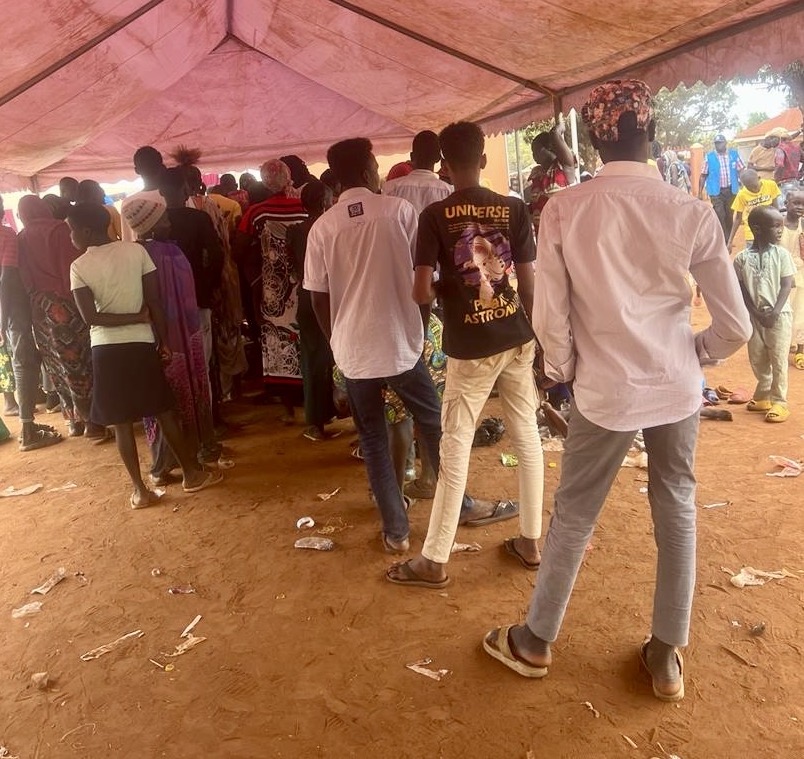A new life in Kiryandango – Sudanese refugee stories
22 February
As the ban continues on Sudanese refugees residing in Uganda’s capital, Kampala, refugees from Sudan from all walks of life are trying to eke out a new existence in the Kiryandango settlement. Ayin had the opportunity to travel through the camp and speak to some of the new Sudanese refugees based there.
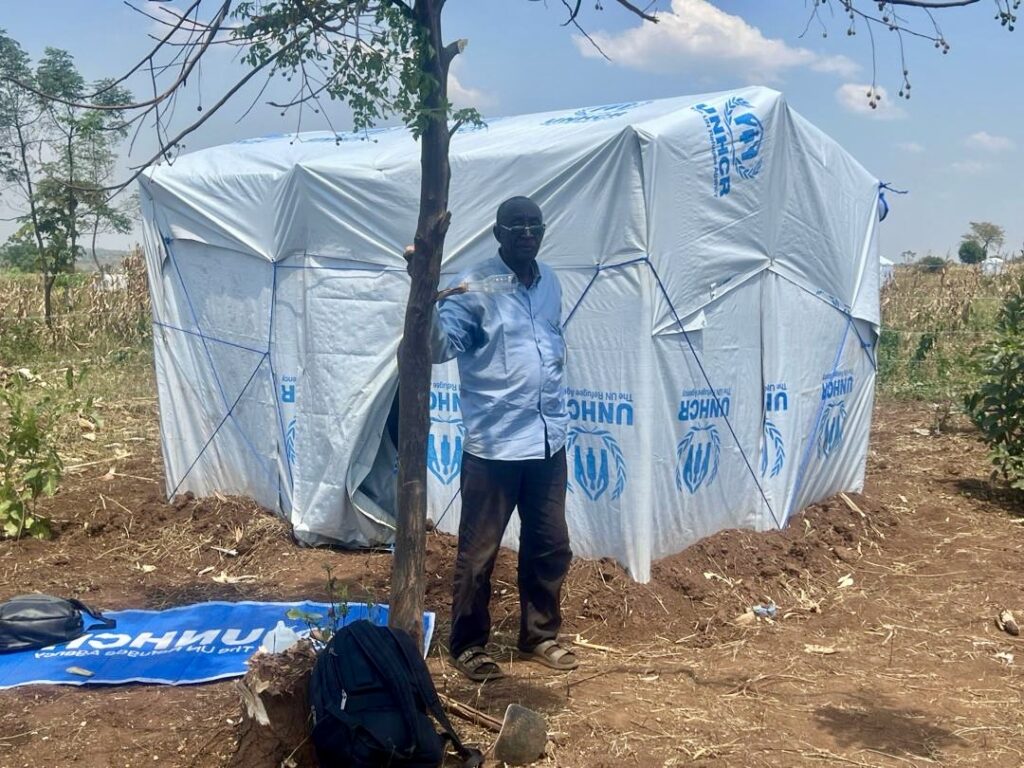
Dawad Ahmed fled the war in Sudan to Uganda from North Darfur. Although he registered as a refugee in the capital, Kampala, he decided to shift his refugee status to Bwelaye in Western Uganda instead due to the high costs of the capital city.
Ahmed, in his 60s, was a former staff to several international humanitarian organizations in Sudan, including Save the Children, Doctors Without Borders, and the World Food Program. At one time fairly prominent, Ahmed lost everything in the war. “Kampala is very expensive and there are no jobs –so some friends encouraged me to seek a plot instead,” he told Ayin from a tent in his plot in the Kiryandongo settlement.
Ahmed curses the warring parties in Sudan for his current predicament. Before the army and paramilitary Rapid Support Forces started fighting one another in Sudan in mid-April, Ahmed lived a relatively comfortable existence in the center of Khartoum. Now he contends with a forest with next to zero resources. “if the two fighting parties fought each other we wouldn’t have a problem, but they are fighting civilians –but what is our fault as civilians? Why target the innocent?”
Ahmed spent two weeks in the refugee reception center in Kiryandongo in Western Uganda before his case was processed and taken with nearly a group of 50 refugees from Sudan to the settlement where they were given plots and tents to live. “They give you plots in the forests, the place is literally a forest –you clean your area and put up tents and build walls from wood”, he says.
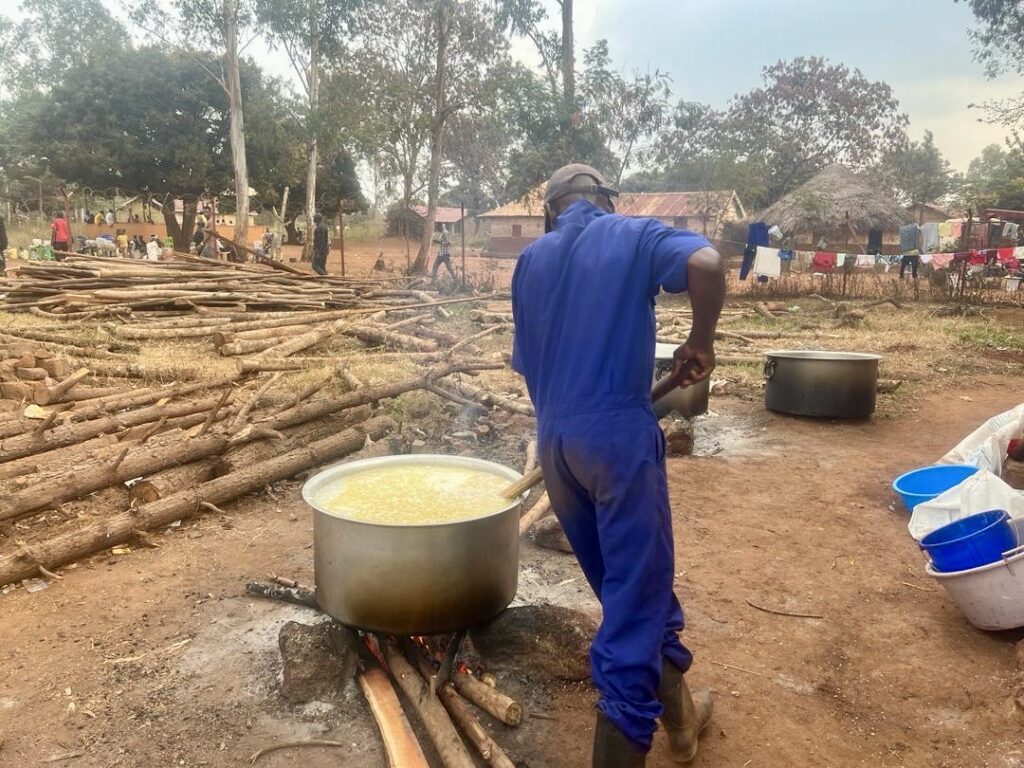
Haider Abdallah, who was a car engineer and shop owner near the air defense headquarters in Sudan’s capital, Khartoum, fled Sudan after his house was destroyed, his neighbors were killed, and more than five cars from his shop were looted. “We lost everything, we fled to Uganda with nothing,” he said. “There is really nothing here [in Kiryandango] but many Sudanese are coming nonetheless since there are no other options. We are all at zero now – despite past efforts to invest and save.”
Abdelfatih Abdelrahman was a secondary school teacher in Sudan before the war kicked off, now he is trying out his hand at farming along with his wife and children in the Kiryandongo settlement in northern Uganda. “Water is one of the biggest challenges in the settlement – in addition to the material used to build tents here are not stable and cannot withstand heavy rains.”
The other thing that worries the father of three about the settlement is that there are no sources of income. “This is the challenge here in the camp, we are all skilled workers but there are no jobs to be had. I have been here four months and, without any sources of income, we end up spending the little savings we have – unable to provide anything for our families.”
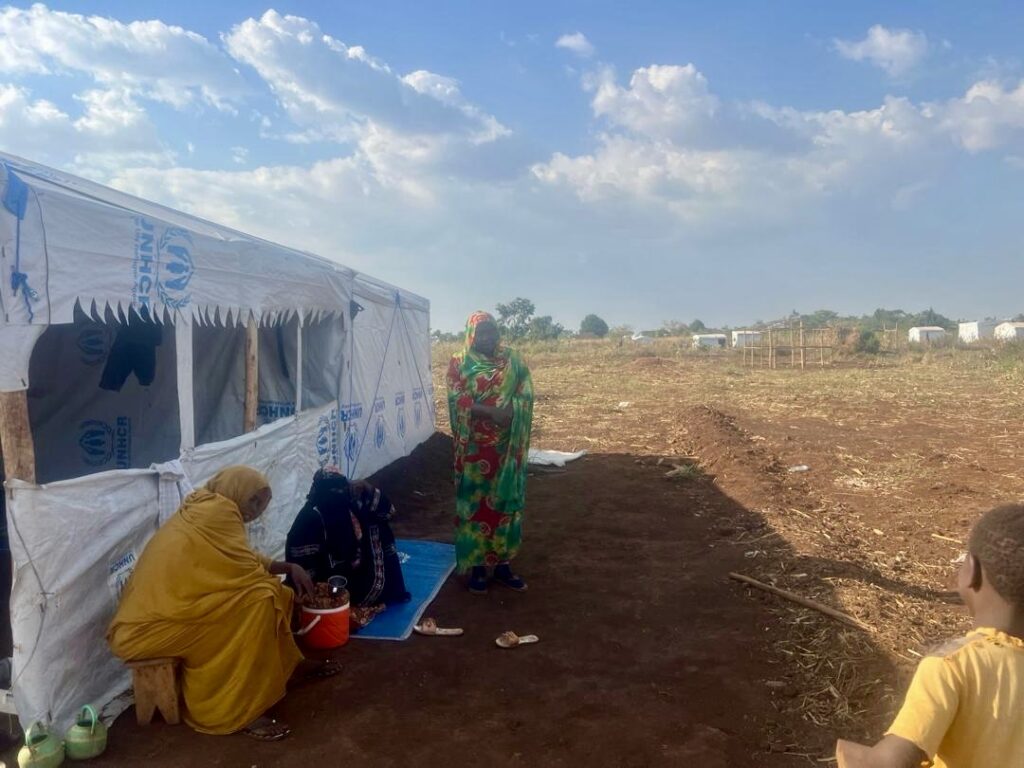
Sana Saidig, who has been in the camp for four months since she fled Sudan, is concerned more about the medical service in the settlement and the area of Bwelaye.
“We don’t have a clinic in the settlement and some key medicines are not available at all in the area, especially for diabetes,” Saidig told Ayin. “I wanted to get insulin for my diabetes but I cannot find it.”
Sana also says since they came to the camp no official has come to visit them.
“We are supposed to be visited by the United Nations to see our situations here, we are victims of war,” she said. “Sometimes I enter my tent and hide from the kids and cry because of the dire living conditions we are living in,” the mother of six children said.
Asia Hassan has recently arrived in Uganda after a long journey and was brought to the Kiryandongo reception settlement center. “All of us here sleep on the ground, every night we hear cases of snakes biting refugees.”
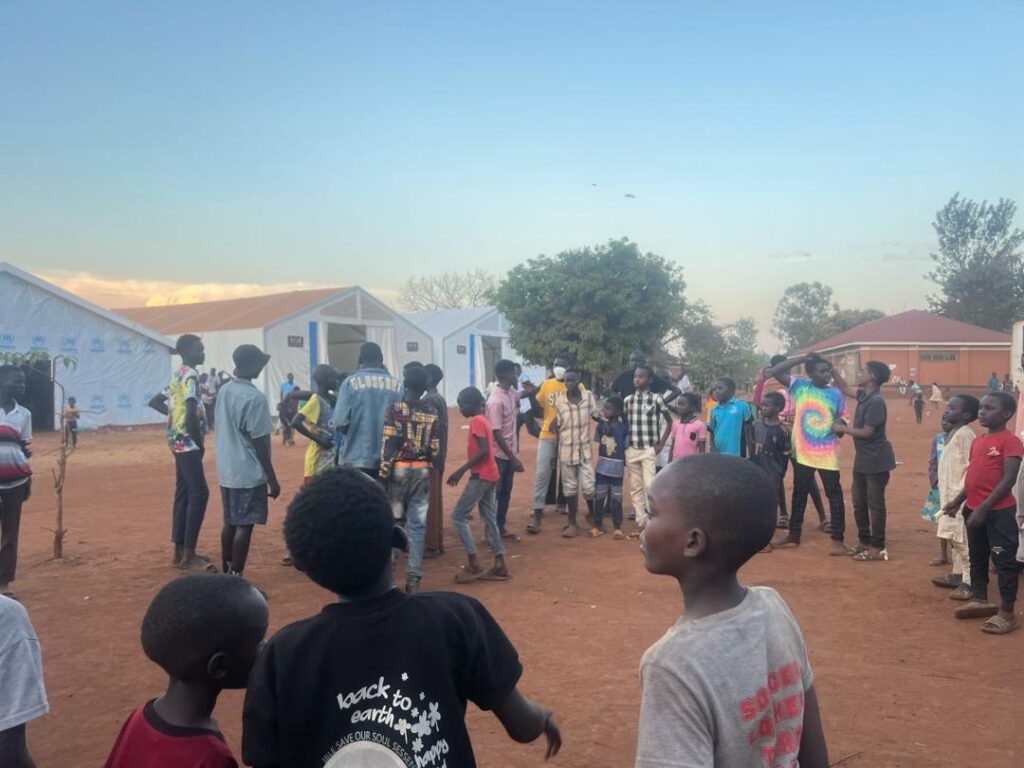
Shazdeh Boutros and her mother also arrived in Uganda recently after a long trip through South Sudan. With registration closed in Kampala, Shazdeh and her mother moved to the refugee camp. “One of the first things I noticed when I came here was the children,” Shazdeh told Ayin. “They were all playing with toy guns made out of local wood – it concerned me since they are clearly so affected by this war.” Shazdeh and other youth decided to introduce the children to alternative games that do not involve war, to help them forget the traumatic events back home. “Eventually we managed to collect all the toy guns from the children.”


